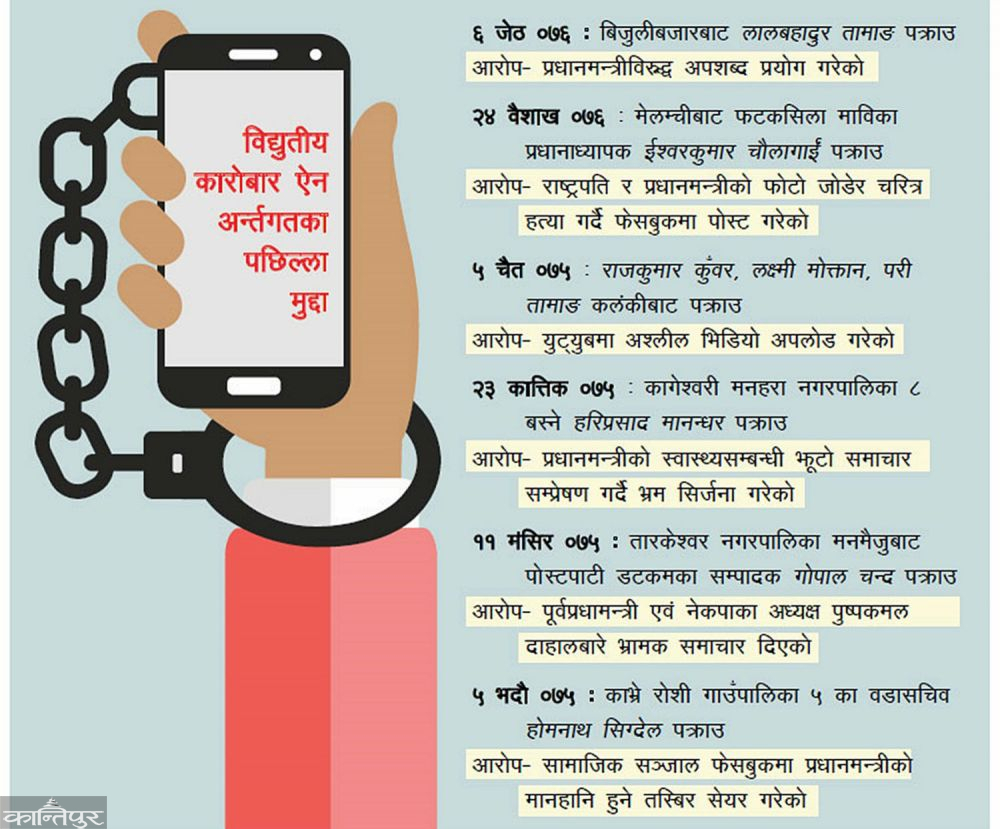अहिले मुलुकका हरेक संस्थाहरु संघीयताको मर्मअनुरुप संस्थागत हुने क्रममा छन्। संघीयता लागु भएपछि सरकारले दुईपटक बजेट प्रस्तुत गरिसकेको छ भने प्रदेश सरकारहरु पनि दोस्रो बजेट ल्याउने तयारीमा जुटेका छन्। स्थानीय सरकार भने तेस्रो बजेटको तयारीमा जुटेका छन्। यसरी हेर्दा संघीय संरचनाहरु क्रमशः संस्थागत हुने क्रममा छन्। संघीयता एउटा अवधारणा हो तर समग्र राजनीतिक व्यवस्थाभन्दा अलग्गै स्वरुप होइन। संघीयता र गणतन्त्र आपसमा जोडिएका छन्। हामीले संघीयतालाई जति बलियो बनाउँछौं, गणतन्त्रलगायतका अन्य राजनीतिक उपलब्धि पनि त्यति संस्थागत हुँदै जान्छन्। अन्य धेरै क्षेत्रले संघीयताको अभ्यास गरिरहेको बेला अहिले मुलुकको सञ्चार क्षेत्रले भने संघीयताको अभ्यास गर्न नपाएको गुनासो गरिरहेको छ। एकातिर सरकारका तीनवटै तहको नीति तथा कार्यक्रम र बजेटमा सञ्चार क्षेत्रले महत्व नपाउने अवस्था छँदैछ भने अर्कोतिर संघीयताको अभ्यास गर्न नपाइरहेको सञ्चार क्षेत्रको गुनासो छ।
सञ्चार क्षेत्रको सवालमा राज्य अलि बढी नै अलमलमा रहेको देखिन्छ। खासगरी पत्रकारितासँग जोडिएको विषयलाई प्रेस वा मिडिया के भन्ने भनेर पनि एकरुपता आउन सकिरहेको छैन। संविधानमा पूर्ण प्रेस स्वतन्त्रता सुनिश्चित गरिएको भनिएको छ। जसले गर्दा राज्यले सम्बोधन गर्ने आधिकारिक शब्द प्रेस नै हो तर पछिल्लोपटक सरकारले मिडिया काउन्सिल गठन विधेयक ल्याएपछि यसको नाममा समेत बहस भइरहेको छ। यो विधेयकमा धेरै विवाद पनि भएको छ। एकातिर संविधानले पूर्ण प्रेस स्वतन्त्रता सुनिश्चित गरेको छ भने त्यही मातहतको कानुनमा पत्रकारमाथि दण्ड जरिवानाको व्यवस्था गर्न हुने कि नहुने, पत्रकारलाई कानुनको डण्डाभन्दा स्वनियमनबाट बाँध्नुपर्ने जस्ता धारणा प्रकट भइरहेका छन्। पत्रकार महासंघ आन्दोनलमै रहेको र सरकारले पनि यसमा संशोधन गर्न सकिने भनेकाले यसमा सहमति हुने सम्भावना देखिन्छ नै। कुनै पनि बहानामा प्रेस तथा अभिव्यक्ति स्वतन्त्रतालाई कुण्ठित गर्नुहुँदैन, सरकार यसमा गम्भीर हुने नै छ।
योसँगै राज्य र समग्र सञ्चार क्षेत्रले ध्यान दिनुपर्ने सवाल सञ्चार क्षेत्रको संघीयता हो। अहिले पनि पत्रकारहरु सूचना विभागको प्रेस प्रतिनिधि परिचयपत्र लिन संघीय राजधानीमै जानुपर्ने बाध्यता छ। जसले गर्दा मोफसलका अधिकांश पत्रकारले यो परिचयपत्र नै लिएका छैनन् र लिएकाहरुले पनि नियमित नवीकरण गराउन पाएका छैनन्। जसले गर्दा उनीहरु विभिन्न अवसरबाट पनि बञ्चित हुने गरेका छन्। सरकारले पत्रकारका लागि दुर्घटना विमाको व्यवस्था गरेको छ तर बिमा गर्न सूचना विभागको परिचयपत्र आवश्यक पर्ने र परिचयपत्र नवीकरण गराउन सबै राजधानी जान नसक्ने भएकाले मोफसलका अधिकांश पत्रकार यो सुविधाबाट बञ्चित भएका छन्। त्यस्तै सञ्चार माध्यमको वर्गीकरण तथा उनीहरुको नियमन पनि राजधानीबाटै हुने हुँदा यो काम पनि प्रभावकारी हुन सकिरहेको छैन।
श्रमजीवी पत्रकारको पारिश्रमिक अनुगमन तथा पत्रकार आचारसंहिता नियमनको काम पनि राजधानीबाटै हुने गरेको छ। कोही पत्रकार वा सञ्चार माध्यमले अन्याय गरेको लागेमा पीडितले प्रेस काउन्सिलमा उजुरी दिने व्यवस्था छ। तर प्रेस काउन्सिलका शाखा कतै प्रदेश वा जिल्लामा नहुँदा पीडितहरु उजुरीदिनकै लागि राजधानी जानुपर्ने बाध्यता छ। त्यस्तो अवस्थामा आफूबिरुद्ध आएका समाचारको खण्डनका लागि उजुरी दिन जानुको साटो अन्य उपायद्वारा बदला लिन खोज्ने प्रवृत्ति बढेको छ। जसले प्रेसमाथिको असुरक्षा पनि बढेको छ। त्यसो त पत्रकारिता क्षेत्रमा तमाम बेथितिहरु बढिरहेका छन्। मोफसलमा हुने बेथितिको सही नियमन नै हुन सकिरहेको छैन किनकि नियमन गर्ने निकाय संघीय राजधानीमा मात्रै छ। यसले एकातिर सञ्चारकर्मी र सञ्चार माध्यमले पाउने सेवा सुविधा राजधानीसरह मोफसलमा प्राप्त हुन सकिरहेको छैन भने अर्कोतिर स्वयं पत्रकार र सञ्चार माध्यमको नियमन पनि प्रभावकारी नहुँदा बेथितिहरु बढिरहेका छन्। त्यसैले पत्रकारिता क्षेत्रको विकास र ब्यवस्थापनका लागि सञ्चार क्षेत्रमा पनि संघीयता लागु गर्न जरुरी छ। संघीयताको मर्म सञ्चार क्षेत्रले महसुस गर्ने गरी राज्यले व्यवस्था मिलाउनुपर्छ।




